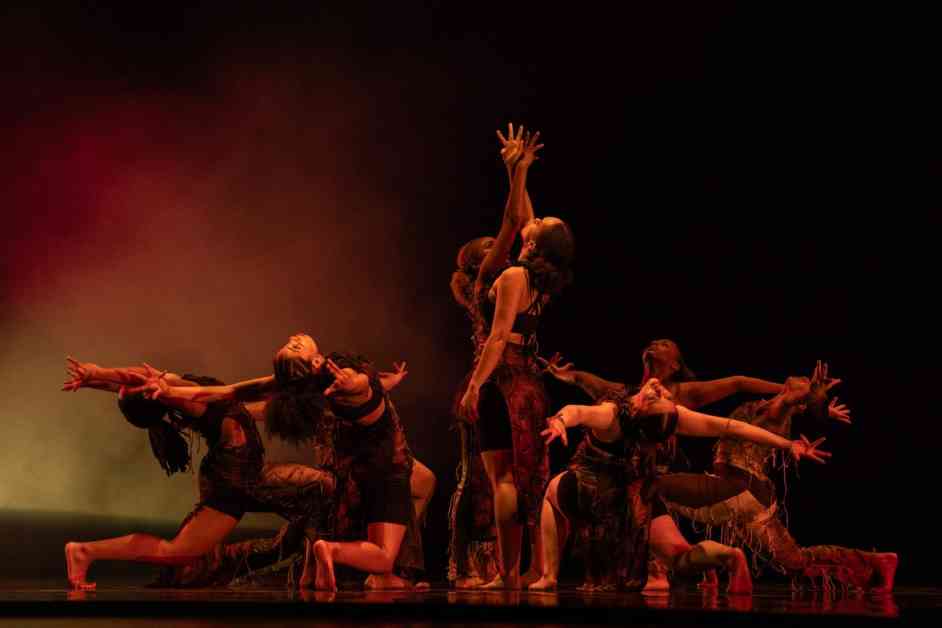The last time we checked in with Vershawn Sanders-Ward, the founding artistic director for Red Clay Dance Company, was back in 2021, as performing arts groups were just beginning to come out of the 2020 COVID-19 shutdown. At that point, Red Clay had just opened their new studio in Woodlawn at 808 E. 63rd St. Sanders-Ward’s vision for the space was more than just a place for rehearsals and classes. As she told Reader contributor Irene Hsiao, “I’m asking artists, individual choreographers, what kind of arrangement with the space would benefit you? And what would you bring to that space?”
Asking others what they can bring to the space, whether in Red Clay’s home studio or on stages elsewhere, is a big part of what drives the company’s work. Next weekend, they’re unveiling a program called Turning Points at the Logan Center as the kickoff for their 16th season. The program features three works: Unconditional Conditions, created by Sanders-Ward; We all ’gon die: into revivals, created by Lela Aisha Jones; and DevelopMino, created by Amansu Eason.
Asked what she looks for in other choreographers for her company, Sanders-Ward replies, “There’s two things that I really value. I value their process—the deep research and investigation and care that they take, not only in the content of their work, but also how they treat the artists. And that’s very important to me—that I have choreographers that are coming in, and they’re gonna have value alignment with our culture and how we like to be in space with one another. But essentially their creative process honors the lineage, and the legacy, and the stories that we bring to the stage, which primarily center Blackness or center the female experience.”
Sanders-Ward’s own piece premiered at Red Clay’s La Femme Dance Festival this past March. Created for eight dancers, the piece is inspired by Paul Laurence Dunbar’s poem “We Wear the Mask,” which captures in just three verses the pain of “covering up” one’s identity for the sake of society. The piece also draws on the theories of Carl Jung about “shadow work” in confronting the darker sides of our psyches and uses music by Missy Elliott, Ran Bagno, and Moses Sumney.
Jones’s piece, receiving its live premiere in this program, was first presented digitally as part of Red Clay’s virtual Visions and Voices concert in 2021. Created for six dancers, it’s set to “Black Truck” by Mereba and an original musical composition and a poem by Jones, who is based in Philadelphia. In a press release, Jones says that We all ’gon die: into revivals is “an effort to try to get to this healing practice—work that allowed me to think about an Afro future, allowed me to think more deeply about our relationship with the natural environment as Black folk, trying to help us touch the otherworldly.”
DevelopMino takes a trip back to the past in celebrating the Dahomey women warriors. First presented in 2015, Eason’s piece for three dancers is set to “Fugama Unamathe (Culoe de Song Serenity Mix)” by Qness.
What the pieces have in common, besides a focus on Black lives (particularly Black women) is, as Sanders-Ward puts it, “a scene or story that typically ties to real-life experience. I think it’s the realness of it. I also think it’s the education that we try to bring to our work. I don’t say educate, but there’s definitely some knowledge sharing that we’re wanting our audiences to have.”
In the case of Eason’s piece, Sanders-Ward notes, “These were very powerful women, and they’re more than what you saw in Black Panther. They’re actually real people that were from the kingdom [of Dahomey] and protected the king.”
Coming back from the pandemic hasn’t been without its bumps. Jones’s piece, Sanders-Ward notes, was in rehearsals for Red Clay’s 2020 spring concert when everything shut down.
“My work on Unconditional Conditions is really about processing this idea of isolation, which is what we were kind of coming out of. How were you moving through that when you were kind of in imposed isolation? What is [happening] when you’re looking at the shadow work or really learning more about yourself as you try to reenter community spaces where we have been separated and disconnected? What work have you done in those times of isolation to consider, ‘I wanna show up maybe differently or more authentically?’”
Practicing care within the company is also part of what drives Sanders-Ward.
“We have very transparent conversations early on, even in the audition process, right? We’ve always sat down and had conversations with artists, before a contract is extended. ‘I need to just know a little bit more about you. I’ve only seen you dancing for like an hour and a half, but I need to know more about you as a person. What do you value? And what are you looking to gain from being a part of an ensemble?’ You know, out of COVID there were a lot of artists that were like, ‘I don’t know if I want to be in a company. I think I’m just gonna do my own project.’ But committing to a group of people is a commitment. I want to understand why you want to be part of a community in that way.”


